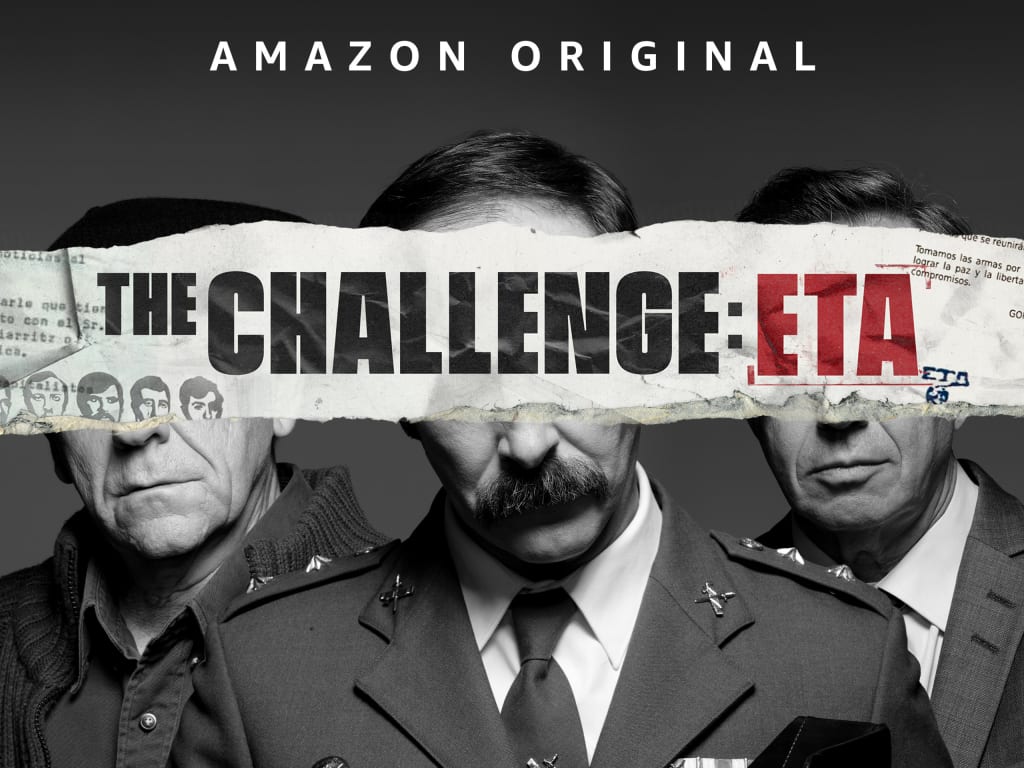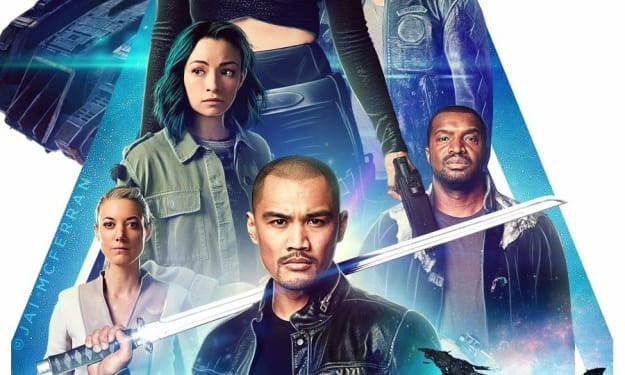Focusing on the truth? A review of 'The Challenge'
A documentary presenting "the truth" will always fail

Did Spanish fascism die with Franco in 1975? No, unfortunately it did not, the authoritarian ideology lived on long after the dictator wa gone. And recent events such as the squabble over Franco's remains caused by the Francisco Franco National Foundation and the imprisonment of Catalan separatists show that Spain is still finding it hard to shake off its murky past. During the Transition to Democracy, former Falangists miraculously transformed into democrats, in a process very reminiscent of how the bureaucrats of Vichy France and Nazi Germany morphed into the leaders of their newly democratic states following World War II.
Nowadays, the traces of the Falange are circulating in the far-right political party Vox; rapper Pablo Hasél was arrested for allegedly praising terrorism and slandering the Spanish state and its royal family. It is within the bounds of such toleration of fascist ideology that we must assess the eight part Amazon Prime series 'The Challenge: ETA'.
I watched the episodes in a state of increasing bafflement and even occasional amusement: what purported to be a history of ETA turned out to be a one-sided history of the Guardia Civil's legal and illegal operations against ETA, no more no less. Wondering what the reviews said, I was surprised to find Spanish press fawning over the show. The executive producer Luis Velo told El Periodico "we set ourselves the challenge of being neutral" and was not questioned further.
For script supervisor José Antonio Zarzalejos, this show is the "full story". But his is a staggering assertion to make; just for starters, the reasons for the conflict itself are glossed over and it appears that Basquenationalism is the evil that must not be spoken. Certainly, the voices of ETA, other Basque separatist groups and political parties such as Batasuna and Askatasuna are almost completely absent. Plus this very partial history ignores other actors such as the Ertzainta (Basque police) and the Policía Nacional, as well as social movements such as ¡Basta Ya!, Foro Ermua and Movimiento por la Paz y la No Violencia.
Perhaps at this point we should examine the Guardia Civil in more detail. It is a gendarmerie, a military force dedicated to controlling its nation's own peoples, formed in 1844. It became notorious after persecuting La Mano Negra, then continued to exist throughout the fascist regime. Later it was Guardia Civil officers who launched the failed coup in 1981, the immediate cause of which was the dissent following the torture and murder of ETA member José Ignacio Arregui.
Guardia Civil officers were not, and still almost never are, held accountable for their crimes, as noted by Amnesty International. In one notorious case, suspected ETA member Kepa Urra was arrested on 29 January 1992 and tortured by the Guardia Civil. He was taken handcuffed to a remote place where he was stripped naked, repeatedly assaulted with a blunt object and pulled along the ground, all because he refused to give his name. He was then taken to a military barracks where he was found unconscious. At the hospital, doctors recorded his substantial injuries and their brave testimony formed the basis of the case against officers including Manuel Sánchez Corbí and José María de las Cuevas Carretero. These two and one other were convicted to four years in prison and barred from public office, before being pardoned after one year.
In a moment of very dark comedy, Carretero then went to represent Spain at the UN Committee for the Prevention of Torture. Corbí became a Guardia Civil Colonel and wrote a book with Corporal Manuela Simón, which then became the basis of this very Amazon Prime show. Corbí himself appears so frequently in the show that he is effectively the narrator, proudly dressed up in his military garb, which includes (his IMDB bio proudly states) "five Guardia Civil Merit crossings with a red badge".
The show omits to mention that he was sacked from the army in 2018. More than that, there is no mention of his prior conviction for torture. When he talks about the rescue of the kidnapped José Antonio Ortega Lara in 1996, his stuttered delivery of how he persuaded an ETA member to reveal the hiding place was telling; no doubt torture was used on that occasion too.
Four former prime ministers are wheeled out to present the official state narrative of ETA terrorism. One, Felipe González, predictably denies he had knowledge of the GAL (Grupos Antiterroristas de Liberación or Antiterrorist Liberation Groups) but his body language indicates guilt. What we do know for certain is that these paramilitary death squads employing far-right mercenaries illegally killed ETA militants on French soil and operated in full knowledge of the Interior Minister, José Barrionuevo, who was convicted for this crime and imprisoned from 1998 until 2001, before being pardoned; in another moment of dark comedy, he pops up briefly to remark upon the importance of choosing friends wisely! Another prime minister, José María Aznar looks rather debonair nowadays and would make a decent Bond villain. He is given a lot of space to talk about terrorism but the fact that he pardoned the creator of the series from the crime of torture is not deemed worthy of mention.
As someone who grew up during the end stage of the Irish Troubles, I was astonished to find that the perspective of ETA was pretty much erased from this documentary. Imagine the outrage if the BBC made a film about the IRA and focused almost entirely upon the British Army and British prime ministers! The UK mainstream media does regularly quote former militants from all sides of the Troubles. In 'The Challenge', regarding the ETA perspective we have a lawyer who gets about two minutes in total, the partner of Jon Kepa and the elderly Angel Alkalde, and that's about it.
As noted earlier, many other groups are simply ignored; the 'Variety' review stated "being truthful means holding all parties accountable, and there are many still today who have not forgiven the Spanish government for their part in the conflict".
In the interests of truth and reconciliation, Spain needs to deal with the legacy of ETA properly. More than that it needs to address its problems with free speech, otherwise the ghost of fascism will never leave. In 2014, a 21 year-old was handed a one year suspended jail sentence for tweeting about GRAPO, a Marxist-Leninist group which engages in armed struggle. After another long saga, another young woman was eventually told by the Supreme Court in 2018 that her joke tweets should not have landed her in jail, although they were "socially and even morally reprehensible".
One rapper was compelled to flee to Belgium to escape a three year prison sentence for his tweets and as I mentioned at the beginning, Pablo Hasél served a nine month prison sentence for allegedly promoting terror. He stayed put to protest the madness and was arrested. Ten thousand people demonstrated in his support in Barcelona.
Hugo Stuven, the director of 'The Challenge', has said "we tried to forget about the controversy and focus on the truth". But how can he even pretend to tell the full story when so many voices are absent? To say that 'The Challenge' tells the truth is an insult to all the people who died in this long civil conflict. We do hear from victims of ETA in this series and whilst it rare and valuable to see the human cost of ETA attacks, it is a very one-sided account when we hear almost nothing about issues such as the abysmal way the Spanish state treated ETA prisoners.
Without balance there will never be reconciliation; without freedom of speech Spain will never forget its authoritarian past.
About the Creator
T. Stolinski
Simple as ABC: Arthouse movies / Books / Cats






Comments
There are no comments for this story
Be the first to respond and start the conversation.